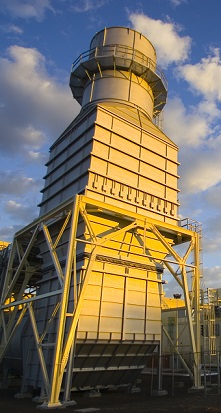Carbon tax scenario shows cost of delay
 The seemingly imminent repeal of the carbon tax is being prevented while Labor and the Greens hold the balance of power in the federal Senate, and new research has investigated how the efforts to end the carbon price may be hurting energy investments.
The seemingly imminent repeal of the carbon tax is being prevented while Labor and the Greens hold the balance of power in the federal Senate, and new research has investigated how the efforts to end the carbon price may be hurting energy investments.
Researchers from Murdoch University have attempted to add scientific weight to one of the most-discussed element of federal politics – carbon pricing and its effect on industry.
A team is investigating how the Federal Government’s efforts to repeal the carbon tax could be damaging investments in Australia’s energy sector.
Lead researcher Matt Shahnazari said even if the carbon tax was repealed right now, the industry still faces uncertainty.
“Labor and the Greens hold the balance of power in the Senate until July, and are refusing to back the Government’s attempts to abolish the tax,” he said.
“The effect of the electoral cycles and more stringent global mitigation efforts mean that a carbon price may be reinstated in the future.”
Mr Shahnazari said this uncertainty over future policy settings influences current investment decisions in long-lived assets, such as electricity generation facilities.
To reach their findings, researchers developed a decision framework investigating one potential business response to carbon pricing.
The scenario considered the options of a private investor in an existing coal plant. The investor’s options were determined as; spend money to convert the facility to a lower emission combined-cycle gas turbine plant (CCGT), abandon the plant, or do nothing.
Murdoch researcher say they found current political uncertainty may delay investment in CCGT conversion, and the possibility of a carbon tax being removed and then reinstated would likely cause any decision to be deferred
“Those who are serious about meeting carbon policy objectives need to create a more stable political environment, as the uncertainty around the carbon tax is hindering investment in cleaner technologies,” Mr Shahnazari said.
“If that stability can’t be achieved, policy makers should consider setting a higher carbon price to improve the business case for converting to lower emission systems.”
Some of the work has been published in the latest edition of Applied Energy, available online here.







 Print
Print